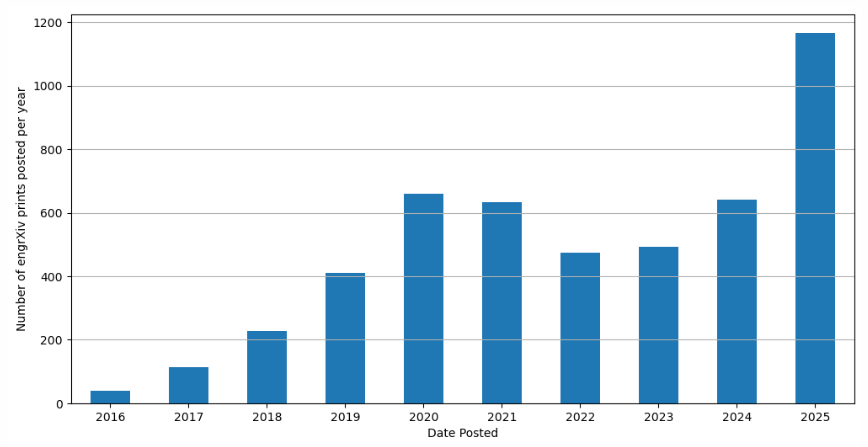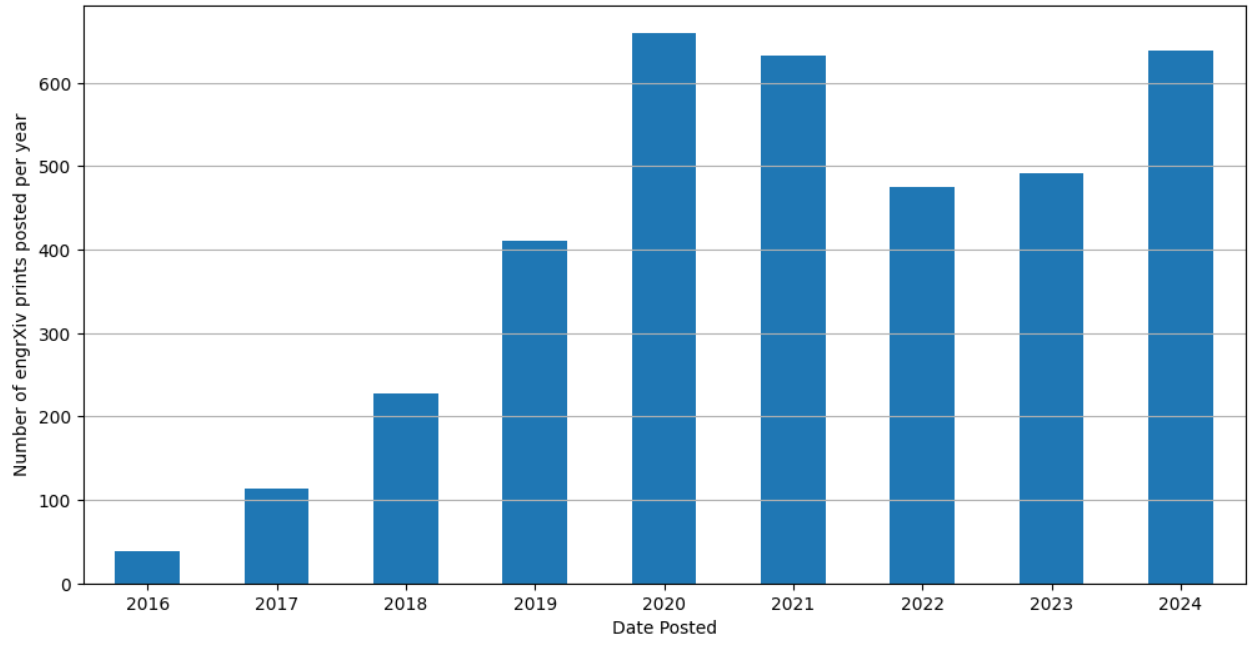This year we have seen a much higher rate of submissions to the server. The number of posted preprints in 2025 increased to nearly 1200, up from about 640 in 2024.

This increase in preprint submissions seems to be due to a couple of factors, increased visibility of the server and a dramatic increase in generative AI-based spam. Somewhere around mid-2025, generative AI tools reached that sweet spot where they could produce technically coherent engineering content. Not necessarily good but coherent enough to pass a casual glance. Suddenly, we were inundated with papers that sounded plausibly technical but contained the academic equivalent of those AI-generated images where people have six fingers on each hand. This has resulted in roughly half of submissions being declined as the moderation team has had to become more aggressive in our evaluation of submitted works. We will be looking to expand our volunteer moderation team in 2026 and also looking to develop tools to assist with handling the increased workflow.
We continue to depend on the Engineering Archive Membership Circle for financial sustainability. Your $500 annual contributions from institutions, libraries, and organizations keep our servers running and our small team operational. Many of our supporting libraries are now in their 8th year of backing the platform, thank you for your continued commitment to open engineering knowledge!
We hope you’ll keep in touch via social media. Find us on the fediverse at our Mastodon account @engrxiv@scicomm.xyz.
Thank you and HAPPY NEW YEAR!

